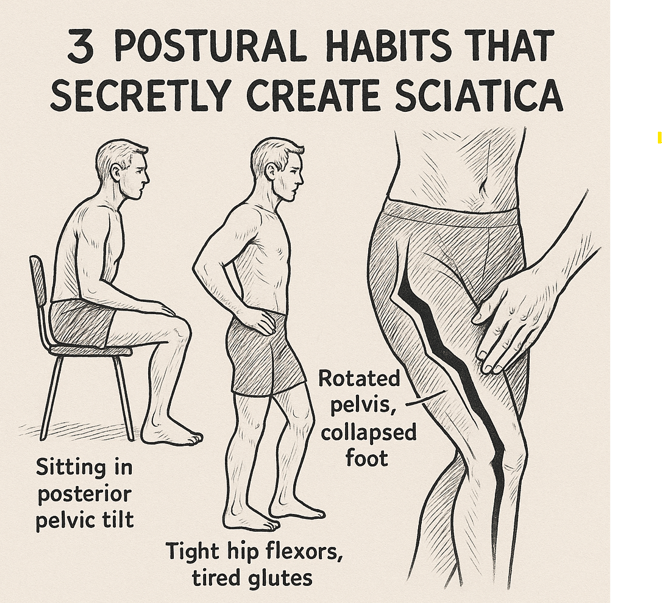The Silent Culprit: How the Coracobrachialis Causes Shoulder and Elbow Pain
- JANMI

- Sep 5, 2024
- 4 min read

By Paulius Jurasius, Founder of the JANMI Method
Hello, and welcome back to the JANMI Method blog. Today, I want to shine a light on a muscle that often flies under the radar but can be a significant source of pain and dysfunction: the coracobrachialis. This small, often overlooked muscle plays a crucial role in shoulder and elbow movement, but when it’s tight or strained, it can lead to pain that affects your daily life.
If you’ve been experiencing persistent shoulder or elbow discomfort, it’s possible that the coracobrachialis is the silent culprit. Symptoms of coracobrachialis dysfunction can include aching or sharp pain in the shoulder or elbow, difficulty lifting the arm, or a feeling of tightness in the upper arm. At JANMI, with our specialized knowledge and experience, we offer trigger point therapy and myofascial release therapy in London, providing holistic solutions to resolve pain at its source.
What is the Coracobrachialis?
The coracobrachialis is a small muscle located in the upper arm. It originates from the coracoid process of the scapula (the small hook-like structure on the front of your shoulder blade) and inserts into the middle of the humerus (upper arm bone). Its primary functions include flexing and adducting the arm at the shoulder. Essentially, the coracobrachialis helps you lift your arm forward and towards your body, movements you probably perform hundreds of times a day without thinking about it.
Why the Coracobrachialis Causes Pain
While the coracobrachialis may be small, it is prone to developing trigger points, which are tight knots of muscle tissue that can refer pain to other areas of the body. For many people, tightness in the coracobrachialis doesn’t just cause localized discomfort but also sends pain down the arm, mimicking issues in the shoulder or elbow. This makes it one of the key hidden sources of pain that’s often misdiagnosed or overlooked.
Common activities that can stress the coracobrachialis include:
- Prolonged sitting with poor posture (such as slouching or rounding the shoulders forward)
- Carrying heavy objects in front of the body (shopping bags, for example)
- Repetitive overhead movements (common in sports like tennis or swimming)
Over time, these activities can lead to the development of painful trigger points in the coracobrachialis, restricting range of motion in the shoulder and causing discomfort that radiates down to the elbow.
How JANMI Trigger Point Therapy Can Help
At JANMI, we understand that addressing the root cause of pain is the key to long-term relief. Our trigger point therapy for the coracobrachialis involves applying targeted pressure to release the muscle’s tight spots, offering a ray of hope for those suffering from shoulder and elbow pain.
By identifying and deactivating the specific trigger points in the coracobrachialis, we can:
- Reduce shoulder and elbow pain
- Improve arm movement and flexibility
- Restore normal muscle function
- Prevent further strain and injury
JANMI Trigger Point Therapy in London is specially designed to provide targeted relief for clients suffering from chronic or acute muscular tension.
The Role of Myofascial Release Therapy
In addition to trigger point therapy, myofascial release therapy plays a crucial role in restoring balance and mobility to the coracobrachialis and the surrounding muscle groups. The fascia is a connective tissue that encases every muscle in the body, and when it becomes tight, it can limit movement and cause discomfort. Myofascial release therapy involves applying gentle but sustained pressure to stretch and loosen the fascia, releasing restrictions and improving blood flow.
At JANMI, our myofascial release therapy is designed to complement trigger point therapy by addressing the underlying fascial restrictions that can exacerbate muscular pain. This combination allows us to offer a more holistic and long-lasting solution to shoulder and elbow pain caused by coracobrachialis dysfunction.
How to Prevent Future Pain
In addition to hands-on therapy, our team at JANMI also provides personalized exercise plans to help you prevent future issues. Strengthening and stretching the muscles around the shoulder, improving posture, and learning how to move in ways that don’t overburden the coracobrachialis are all part of our approach.
Here are some simple tips to avoid coracobrachialis strain:
- Maintain good posture: Keep your shoulders back and your head aligned with your spine when sitting or standing.
- Incorporate stretching: Gentle stretches for the chest, shoulders, and arms can help release tension in the coracobrachialis.
- Avoid overloading the arms: When lifting or carrying heavy objects, be mindful of how you're distributing the weight.
Your Path to Pain-Free Living
If you’ve been dealing with persistent shoulder or elbow pain that hasn’t improved with conventional treatments, it might be time to consider trigger point therapy and myofascial release therapy at JANMI. Our expert therapists are trained to identify and treat the root causes of muscular pain, helping you regain mobility and live pain-free.
Visit us at one of our London locations in Marylebone, Belgravia, or Monument to experience the JANMI difference. Each of our locations is equipped with state-of-the-art facilities and staffed with expert therapists. Whether you’re dealing with coracobrachialis-related pain or another musculoskeletal issue, our team is here to support your journey to better health and well-being.
To book your session, simply visit our website or give us a call. Our friendly staff will guide you through the process and help you find a convenient time for your appointment. Don't let shoulder or elbow pain hold you back. Take the first step towards a healthier, pain-free life today.
Disclaimer: Always consult with a healthcare professional before starting any new treatment or exercise, especially if you have an existing medical condition. Rest assured, at JANMI, your safety and well-being are our top priority, and our therapies are designed to be safe and effective.



Comments